|
I had a great time with the Virginia Symphony and Classical Mystery Tour, reentering musical life with music of the Beatles. Someone even got a little clip!
0 Comments
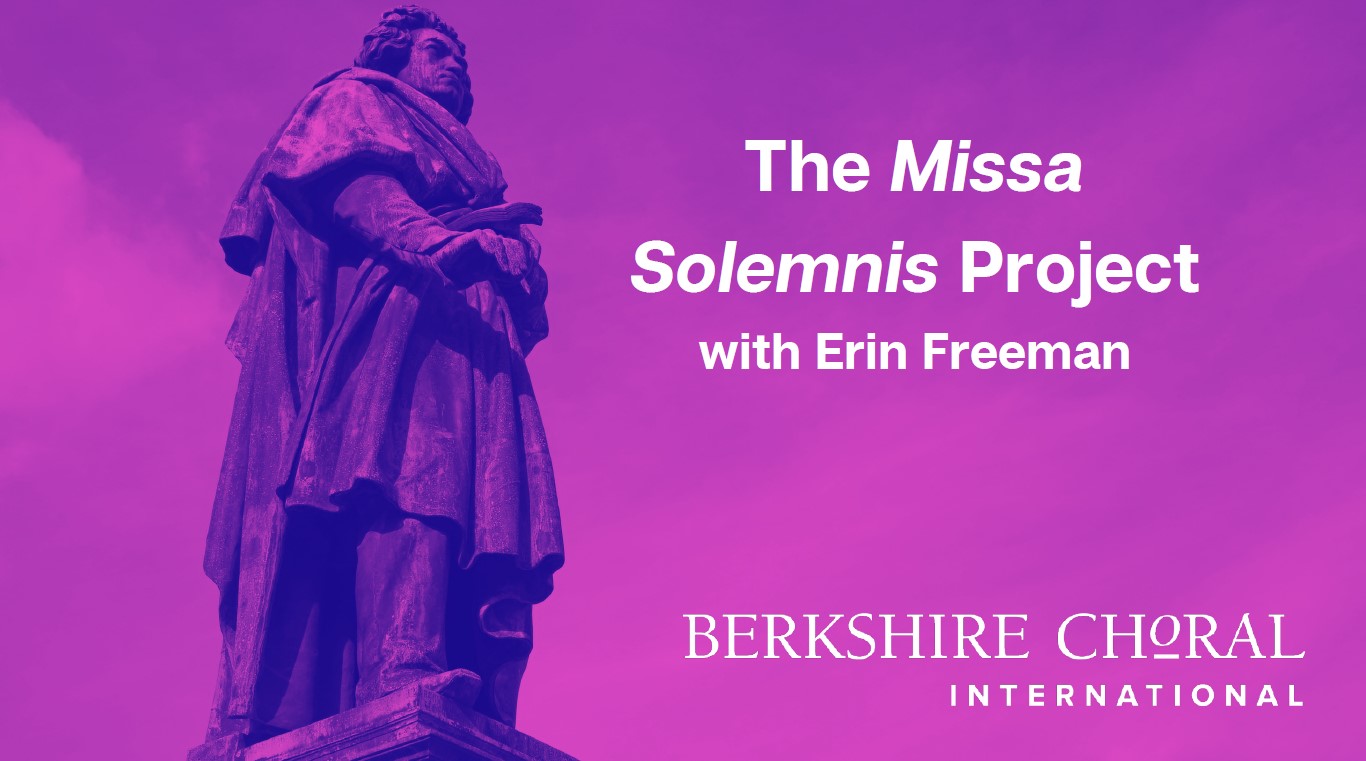 In November, I had the opportunity to relive my work on Beethoven's Missa Solemnis for Berkshire Choral International. In a three part online series, I explored the work, including some vocal warmups and opportunities to sing along. Thanks, Frank Nemhauser, Chris Tucci, and Steven Smith for making this possible! Part 1Part 2Part 3As you might expect, my life is looking a bit different these days. Instead of waiving my baton, my days are filled with ZoomHearsals, audio and video editing, and a bit more exercise that usual. As I was working out to my favorite Daily Burn workout app, grateful for the unending energy of the instructors, I had a revelation.
It was 1980, if my calculations are correct. It was my first day of Young Singers of Callanwolde, and the dignified, white-haired, completely invested man in front of us gave us an assignment. Before our next rehearsal, we were to copy a treble clef 100 times. Something about Mr. Ortlip, Mr. O as we were to call him, instilled trust that such a task would be fruitful. And, of course, with his slightly intimidating demeanor that I sensed could veer into frustration if we didn’t work hard enough, I obliged. I went home, and sitting in our family room on the floor next to the brass daybed, I struggled through those treble clefs.
They had to be precise. I struggled to circle the G with that final swirl. I tended to go too high or too low, and when I did get the G, it didn’t look as effortless as the sample. But I persisted. 98 . . . 99 . . . 100. They weren’t pretty, or easy, or elegant, but Mr. O was pleased.
As I sit here, watching a live feed Mr. O’s memorial service, I understand the payoff. He inspired me to persevere and work through the challenges, so that the music could become a part of me. With every skill he pushed me to learn, every challenge he directed me to face, and every harmony he inspired to perfect, he gave me the tool of life-long music. He gave me the will to struggle through 100 treble clefs so that those five steps would eventually become one natural, elegant swoop. He gave me the courage to push through all of the hard parts of music, so that music would eventually become a part of me. --- In addition, he was always there for me – there at every Young Singers rehearsal to challenge me, there at my high school graduation, with me at my first performance with the Atlanta Symphony Chorus, and even a at my wedding. He also gave me friends, experiences, and music that have shaped who I am. And for that I am eternally grateful. But mostly, he gave me the joy of the struggle. Using the training I received in children’s choir, I did not move a muscle during the first four movements of Mahler’s Resurrection symphony. I sat perfectly still, staring (probably without blinking) at Yoel Levi as he, the Atlanta Symphony Orchestra, and two soloists led the music to our inevitable entrance in the fifth movement. When it was time to stand, or Aufersteh’n (Arise), I took great pride in the Atlanta Symphony Chorus’ perfect unison. We even stood with rhythmic precision! We were the Rocketts of choruses. Every single action we took was part of the group – and that group declined in impact as soon as one individual went rogue, or stood even one millisecond behind the rest
During the performance, I greatly anticipated our first entrance, a ppp that Maestro Levi had worked diligently to perfect. As off-stage trumpets heralded our opening chorale, I recalled the extraordinary efforts we had taken in rehearsals to achieve a soft enough dynamic for him and for Mahler. We sang soft. We sang softer. Half of us whispered and half sang. Half hummed and half sang. Half of us hummed and half of us turned around backwards singing the words (an impractical solution for performance). We all lifted our folders to block our mouths I don’t recall which solution we ended up using as a chorus, but I can remember mine: use so little air that you basically hold your breath for 22 bars Probably not the best idea After sitting perfect still (and mostly likely stiff and tense) for the first hour or so, I stood and held my breath for several measures, and the worst thing that could have happened did: I went rogue My view of the stage began to narrow, so that I couldn’t see the harps or the basses. Then, the backs of the violins and cellos disappeared. Then, the fronts of the sections. Finally, it was just me and the maestro. As he led the chorus through “Arise, yes, you shall rise again, my dust, after a short rest,” I grabbed the soprano next to me (who I believe was a police officer by day) and woke up with my head in between my legs. Luckily, I came-to in enough time to sing the next entrance: “You are sown to blossom anew. While the music lifted the souls to eternity, I remained seated and did my best to focus on Mahler and not my complete and total mortification. (Remember, I was a teenager in this storied ensemble, so I was sure that the entire world was looking at me the whole time). After the performance, everyone did their best to convince me that it wasn’t that bad. Thanks to the police woman, I hadn’t actually fallen, but had rather been placed on my chair. My fellow choristers shared with me stories about people passing out, throwing up, and having to be hauled off during the music. And, of course, the Resurrection jokes were abundant. So, I was feeling better... …until the next morning when the phone rang at 8am as I was getting ready for school “Erin,” said the mother of a friend of mine in one of those beautiful southern drawls. “I saw your dreadful fall last night and wanted to make sure you were okay.” Well, I was until you called me, I thought! That night, and the night after, as the trumpets beckoned us to sing, all I could hear was “dreadful, dreadful, dreadful, dreadful” on repeat The next week we took the work to Avery Fisher Hall. We flew on a chartered plane, rehearsed on the historic stage, and blew the audience away. However, the gong was in my right ear, so in addition to hearing “dreadful” chanting incessantly in that beautiful lilting voice, I had to prepare for each gong strike by slowly putting my right hand up to my ear. For me, there was no transcendence in that Mahler 2 Since that time, I have sung and recorded the piece, I have heard it in performance, and now, this week with the Richmond Symphony Chorus, I have prepared it. Each time, I hope that my dreadfulpavlovian response to the trumpet fanfare will subside. I yearn to hear the “auferstehen” as it was meant to be heard, as a comfort and a triumph, rather than a command to stand up after having passed out. This week’s performances have promise for a personal victory in this front. I am not nervous at all about the chorus’s ability to pull it off – heck, knock it out of the park. I don’t have to stand next to a gong. And, I know that if something were to happen, my beloved Richmond Symphony family would gently sit me down in the nearest chair and put my head between my legs. Besides, I’m conducting the offstage trumpets, so I’ll be too busy to worry about the 23 year old legacy of dread. THIS week, I’ll get dizzy in Mahler Two for the right reason – because the Resurrection Symphony is the ultimate expression of redemption, triumph, and transcendence *** After note: I found out years later that after that “dreadful” fall, the maestro understandably did not want me to travel to Avery Fisher, fearing I would fall again, and this time on a more national stage. I was allowed to go, however, because several adults stood up for me and demanded that I be included on the tour. To know that those adults put themselves on the line for the benefit of a highschooler has deeply impacted me. I hope to always pay it forward, because although that trip had a “dreadful” underpinning to its soundtrack, it created in me the determination and fire to become a professional musician. I’ve been thinking about Atlanta. Just today, a performance that I conducted was on the local radio – Missa Solemnis, made possible by the generous spirit of several in Atlanta who guided me through the difficult work. Tomorrow, I rehearse my chorus in Mahler Second Symphony – a piece I performed, recorded, toured, and passed out in with the Atlanta Symphony. And Wednesday, I have to finish programming my holiday concert – always inspired by the perfection of the Atlanta model.
Also, I’ve been asked by several to make a statement on the current situation in Atlanta. It’s tricky for various reasons, least of which is that I don’t know all of the details. Also, I have so much to say that cannot fit in one tiny post. Already, what is below is probably way too long. And, most frightening to me: I’ve been taught throughout the years to stay out of such things. After all, ‘they’ say it’s none of my business and my career could be ruined. But, I just don’t think I could live with myself if I didn’t express my total, complete, and undying love, affection, and awe for the Atlanta Symphony. So, here goes. No solutions, no judgment. Just one person’s perspective on what an institution driven by artistic excellence can do. I was six. We dressed up, drove through tree-lined Ansley Park, found a free parking spot, and crossed the sprawling and impressive Peachtree street to the big, square building with the promise of greatness inside. We went all the way up to the top balcony and sat in the very last row. Too small to see over the heads in front of me, I precociously propped myself on the back of the chair. The stage slowly filled with people. First the musicians of the orchestra, one by one. Then, a group of children in plaid vests, looking straight ahead at the podium as if something magical was about to happen. A men’s chorus in impressive suits took their place, followed by the wondrous sea of blue. The single A, followed by an organized cacophony (is there such a thing?) quickly became one of my favorite sounds, as it heralded the life altering experience that was to soon to follow. Then, the man himself entered. Unassuming in stride but mighty in presence, he stepped on the podium with work to do – an intangible task to complete. Then, a bell. A single chime rang forth, followed by the smooth sound of the people in blue as they sang a sinewy and mysterious line. Chill bumps still raise when I think of the stage bursting forth with “Rejoice, Rejoice, Emmanuel shall come to Thee, O Israel.” Transfixed, I barely had time to catch my breath when a man began “Comforting” me. Then, again, the sea of blue and the people in tuxes exploded into a joyful, musical, Handelian dance. I, like many, can probably recall the exact order of each year of the Christmas with Robert Shaw, from the mysterious opening chime to the triumphant conclusion of Bach Dona Nobis Pacem. For me, that first experience with the Atlanta Symphony Orchestra and Chorus (and friends) made me. It was the music, the mass of people, the conductor, and excellence that molded who I am, what I do, and how I strive to be. From that point on, I knew I had to one day be up there on stage with that excellence. Somehow, at age 6, I set that goal for myself. I was going be in the Atlanta Symphony Chorus come hell or high water. It was no easy task.
But for today, that’s not the end of the story. Since then the ASO musicians and staff have supported me in my musical endeavors – inviting me to sing for Mr. Shaw’s memorial service, offering library guidance, opening up rehearsals and coaching sessions, meeting for programming advice, and even fielding many small and large e-mail and phone questions. When I’m back home, I buy a ticket and sit in the audience with chill bumps as I listen to many of the same players who were in the orchestra when I was a kid – all playing alongside newer members who have traveled from around the world to be a part of the mighty ASO. I still get so excited that at times I’m tempted to prop myself up on the back of the chair to get a better look at the intensity, the focus, the size, the grandness and gentleness of it all. Still, however, my ASO love story is not over. For as much as the great Atlanta Symphony tradition has attracted musicians to town to teach, inspire, and mold the likes of precocious 6 year olds, the same Atlanta Symphony tradition has also made its way across the country in small but meaningful ways. I know many who were trained in the school of ASO excellence who are far more accomplished than I and have done more justice to the great musical legend of the south, but I can only speak for myself and share that the ASO has through me taught tens of thousands of students to hear orchestral music; encouraged hundreds (probably more) of adult amateurs to pick up their instruments again; grown the ranks of a chorus originally founded over 40 years ago to sing with Mr. Shaw to a full-season chorus about to perform the likes of Mahler, Bernstein, and Orff; helped several students get into college – students who without music might not have graduated from high school; commissioned works by living composers; and demanded from thousands of students a level of excellence of which I hope Mr. Shaw and his sea of blue would be proud. I don’t say this to brag, because this is all part and parcel of being a conductor and a teacher. Rather, I credit the ASO University for inspiring me and pushing me to gain the skills, determination, and presence of mind needed to accomplish such tasks. And, I credit the ASO tradition for bringing teachers and conductors to Atlanta who reinforced such discipline of purpose. I do not know the answer to the current issues. I’ve served on non-profit boards, been an orchestra staff member, a librarian, a volunteer singer and a paid singer, conducted, taught, budgeted, and lectured, so I know that the answer is beyond complicated. But I have also gotten chill bumps at the mere thought of an Atlanta Symphony performance, so I know that the solution is worth spending the time to discover and the artistic legacy is worth saving. My greatest hope is that when the news of an answer does arrive, all of us schooled in the Atlanta Symphony tradition will go home and cry tears of gratitude that we will continue to be buoyed by the sea of artistic excellence for which the Atlanta Symphony is known locally, nationally, and across the globe. No more tears of fear that this Monday may be our last. Wintergreen Performing Arts recently named Erin Freeman at its Artistic Director. Nestled in Virginia’s Blue Ridge Mountains, Wintergreen Performing Arts’s flagship programs are the Summer Music Festival, which features professional musicians and artists from around the world, and the Academy, which offers music students education and pre-professional training in their chosen field. Freeman will artistically lead these endeavors as well as other programs through the year.
PRESS:
FREEMAN APPOINTED TO JOINT POSITION AT RICHMOND SYMPHONY AND VIRGINIA COMMONWEALTH UNIVERSITY7/10/2014 On May 28, 2014 the Richmond Symphony and Virginia Commonwealth University announced an exciting new partnership – a joint position of Director of Choral Activities at VCU and Director of the Richmond Symphony Chorus. Erin Freeman, who has been Director of the Richmond Symphony Chorus since 2007, will hold the position which comes with a faculty rank of Assistant Professor.
NEWS STORIES:
PRESS RELEASES: As I study my scores for this Friday’s performance with the Buffalo Philharmonic Orchestra and the Chieftains, I’m reminded of the last time I met a Paddy from Ireland. I knew this Paddy for an hour, but he will forever be my Uncle Paddy. My mother took me to Ireland before my senior year in college. Thrilled to visit the isle that inspired my name, I died my hair red (and from the looks of the picture, packed all of my mom jeans). As we drove from the East Coast to the West, we stopped at every opportunity to take pictures of the verdant hills, the black sheep, and a cottage that looked straight out of an Irish fairy tale – small, vibrantly painted, and surrounded by fields of green. We pulled over to gawk and take pictures of the small house covered in bright, ornate hand-painted designs, and right at that point a man in a large black American SUV pulled into the driveway, blocking our perfectly framed shot. Sadly, my mother and I had the same thought – “get out of the way of our picture, you stupid American tourist!” (Of course, who were we but stupid American tourists.) Luckily, we didn’t express our disgust out loud, because the man hopped out of the car, saw us, and called us over. We crossed the street with some trepidation, but at least it gave us an excuse to ask him to move his car. Well, he did one better. He said: “This is my Uncle Paddy’s house. Please come in and have some tea.” At that point, we forgot we were in modern times, when stories like this end up as a CNN special of the tourists who get lured into the painted house and are held hostage (or worse). You can almost see the headline: “A Modern Day Hansel and Gretel.” Anyway, the whimsical paint, the clipped accent of the nephew, and the smell of freshly baked cookies clouded our judgement, and for that I am forever grateful. The inside of the cottage was as bright as the outside, but in solid colors only. Soon, that brightness was out-shined by the presence of Paddy himself – an energetic man in his 70s or 80s (hard to tell). He told us how he had meticulously painted every square inch of his house – inside and out. Not too long ago, he shared, a fire had destroyed his detailed handiwork on the inside, but he was determined to repaint it. He had recently completed the first step in this restoration: the solid background of each wall (what we had seen). Next was the arduous but exciting task of deciding what decorations to paint. It would come to him as he worked. His nephew was not so pleased at the thought of his uncle on a ladder for hours on end, but there was no stopping Paddy.
After about an hour of soaking up the Irish tea, the Irish accents, and the Irish hospitality, it was time to continue on our journey. He was overjoyed that my name was Erin and that I could play the penny whistle, and he declared himself my honorary uncle, insisting that we take our picture at his front door. When my mother and I arrived in Galway, we found ourselves in a book shop and noticed a charming book on Irish Cottages. I opened up the pages, and there it was – Uncle Paddy’s vibrant house, in all its colorful glory. But, the picture missed the brightest part – Uncle Paddy himself.
Dear Richmond Symphony staff, league, board, volunteers, party-planners, party-attendees, conductors, orchestra musicians, chorus members, YOP players, donors, sponsors, and more (aka my beloved Richmond Symphony family),
You might have noticed over the past 7 years that I am a bit of a micromanaging control-freak. I like things a particular way, and I don’t hesitate to let people know. With this self-aware admission, let me just tell you that I would not have changed a thing about Saturday night’s gala. From the choice of location to the check-in table, from the music to the food, from the guests to the lovely table arrangements, everything was perfect! What struck me most, however, is that in one night you embodied everything that I love about the Richmond Symphony. The evening had incredible music that went from lyrical and serious to down-right hilarious. The brass quintet + percussion performed with finesse and joy. The YOP players played as one ensemble, and musically and astutely followed Becky Jilcott’s excellent direction. The chorus – well, they got the flash mob they’ve always wanted, AND they admitted that count singing is the best tool out there! Speeches by Aimee, David, Steven, Phil, and Joe made me laugh and touched my heart. And, the mix of people who attended perfectly represented my life and my passions in the good ole RVA. So, I’d like to say thank you all so much for the party of a lifetime. But, even more than that, thank you for all you did in the 7 years (9, including the RPO folks) leading up to Saturday’s incredible festivities. My entire time here in Richmond has been an extended party with fun, joy, laughter, tears, good drinks, good food, and good friends – and of course, excellent music. Congrats on a great event, and thank you for capturing that all in one unforgettable evening. With much love and admiration, Erin |
Archives
June 2021
Categories |
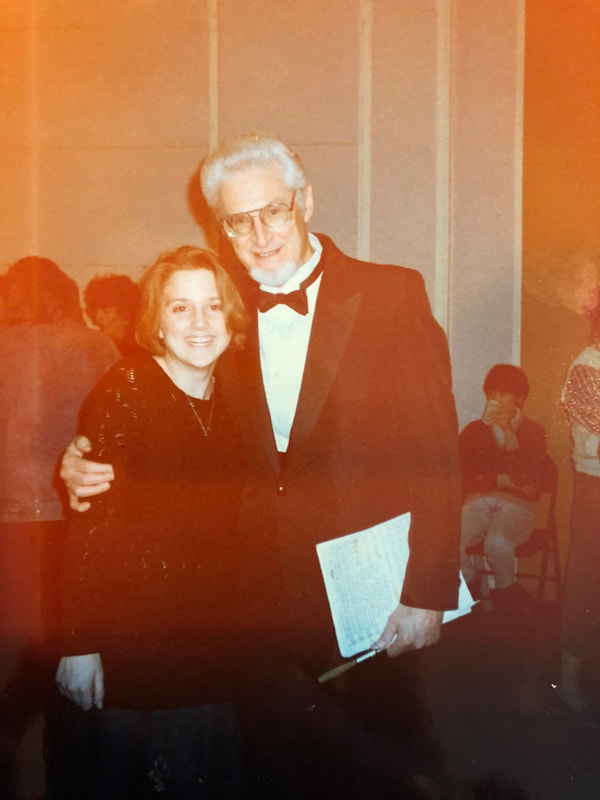
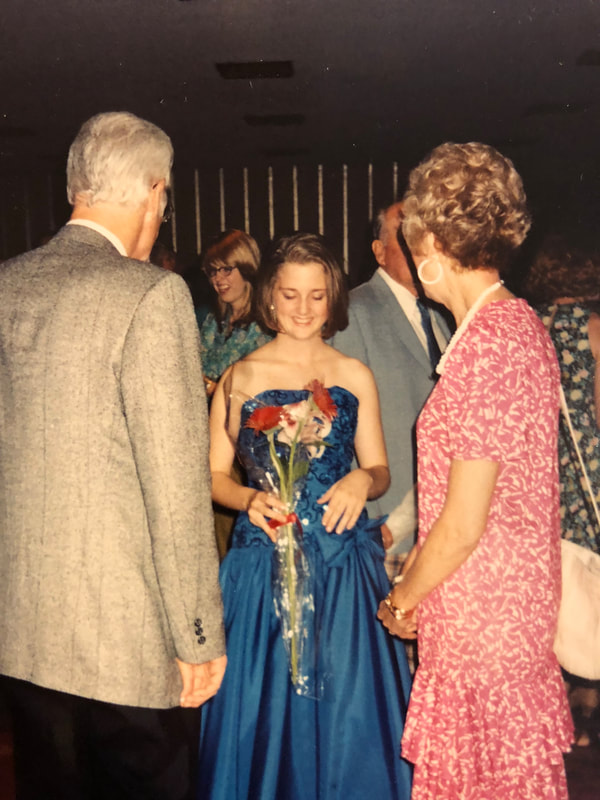
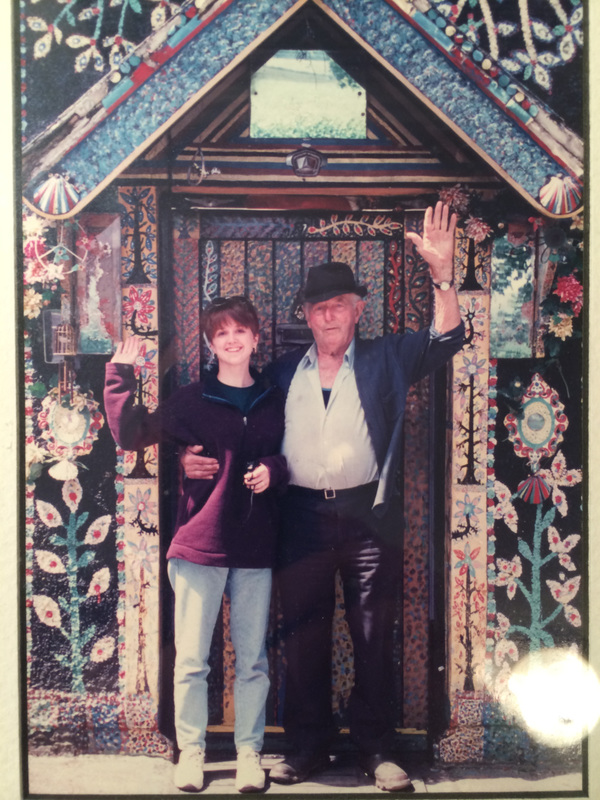
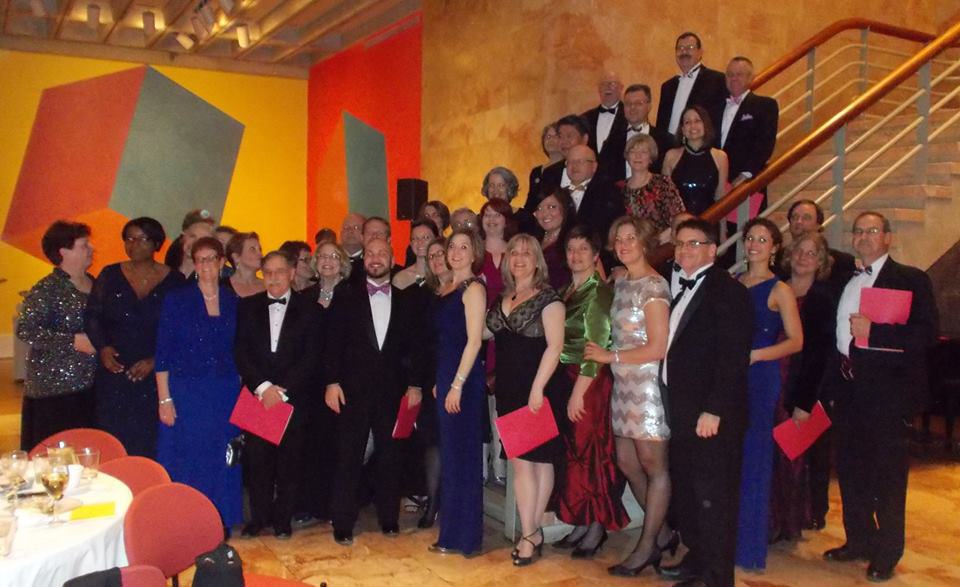
 RSS Feed
RSS Feed